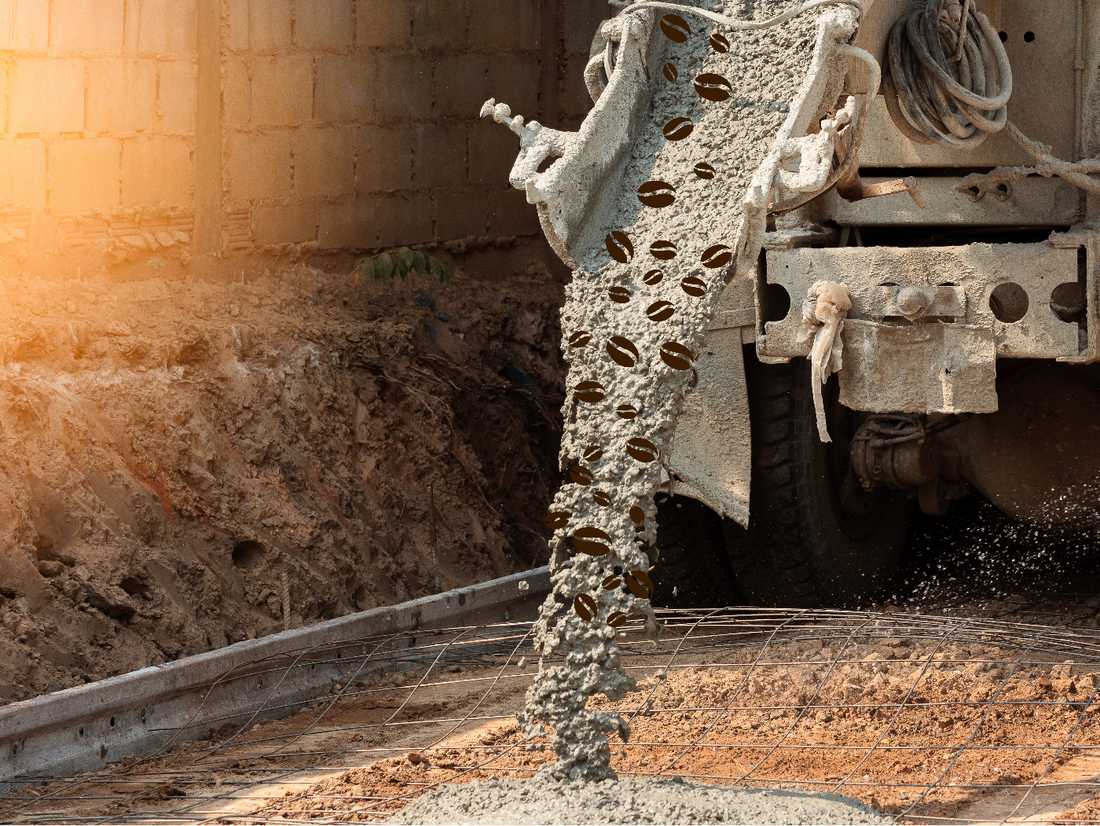Coffee Makes Concrete Strong
The article titled "Turning Coffee Grounds into Sustainable Concrete" sheds light on a groundbreaking initiative currently underway at RMIT University in Melbourne, Australia. This project has garnered attention for its intersection of two critical spheres: environmental sustainability and cutting-edge technology.
Researchers at RMIT have embarked on an ambitious endeavor involving the transformation of discarded coffee grounds, a commonly overlooked waste product. Their objective is to convert these coffee remnants into a material with the potential to revolutionize the construction industry—sustainable concrete.
The premise might raise eyebrows: how can coffee grounds, seemingly unrelated to construction, be repurposed into concrete? The answer lies in the distinctive properties of coffee grounds, primarily their high porosity. When combined with specific additives, coffee grounds can be integrated into concrete formulations, yielding a lightweight, eco-friendly alternative to traditional concrete.
What sets this innovation apart is not merely its sustainability but also its exceptional thermal insulation capabilities. The resultant coffee-infused concrete possesses superior insulation properties, offering potential energy savings within buildings—a considerable contribution to climate change mitigation.
Of particular interest is the multifaceted approach of this project. It simultaneously addresses two pressing challenges: waste reduction and the reduction of the carbon footprint associated with concrete production, a notable contributor to greenhouse gas emissions.
Shifting our focus to the broader context of waste management, it is essential to recognize the environmental implications of organic waste in landfills, particularly the generation of methane gas. Methane carries a global warming potential 21 times greater than carbon dioxide (CO2). Spent coffee grounds (SCG) represent a significant fraction of organic waste directed to landfills, emphasizing the need for recycling solutions.
This is where the concrete industry steps in as a potential game-changer in the recycling of SCG. However, due to the organic composition of coffee grounds, direct incorporation into structural concrete is unfeasible. To address this challenge, an innovative experiment was devised. It involved subjecting coffee grounds to varying temperatures, including 350 and 500 °C, to determine their suitability for enhancing concrete properties. Instead of traditional sand, raw and pyrolyzed coffee grounds were utilized at different replacement levels (5%, 10%, 15%, and 20% volume replacement).
A comprehensive battery of tests was conducted, encompassing X-ray fluorescence (XRF) analysis, Carbon, Hydrogen, Nitrogen, and Sulfur (CHNS) analysis, laser diffraction particle size analysis, X-ray diffraction (XRD), scanning electron microscopy (SEM), and compressive strength assessments. The findings illuminated a significant challenge—leaching of organic compounds from SCG inhibited the cement particles' hydration, thereby impeding the compressive strength of SCG-blended concrete.
However, the experiment revealed a remarkable turning point: pyrolyzing coffee grounds at 350 °C resulted in substantial improvements in material properties. Consequently, concrete incorporating coffee biochar achieved an impressive 29.3% enhancement in compressive strength.
In essence, while not professing expertise in concrete science, it is evident that this experiment marks a transformative milestone. It underscores the potential for converting waste into a valuable resource, thereby fostering a greener and more sustainable future—one coffee cup at a time.



